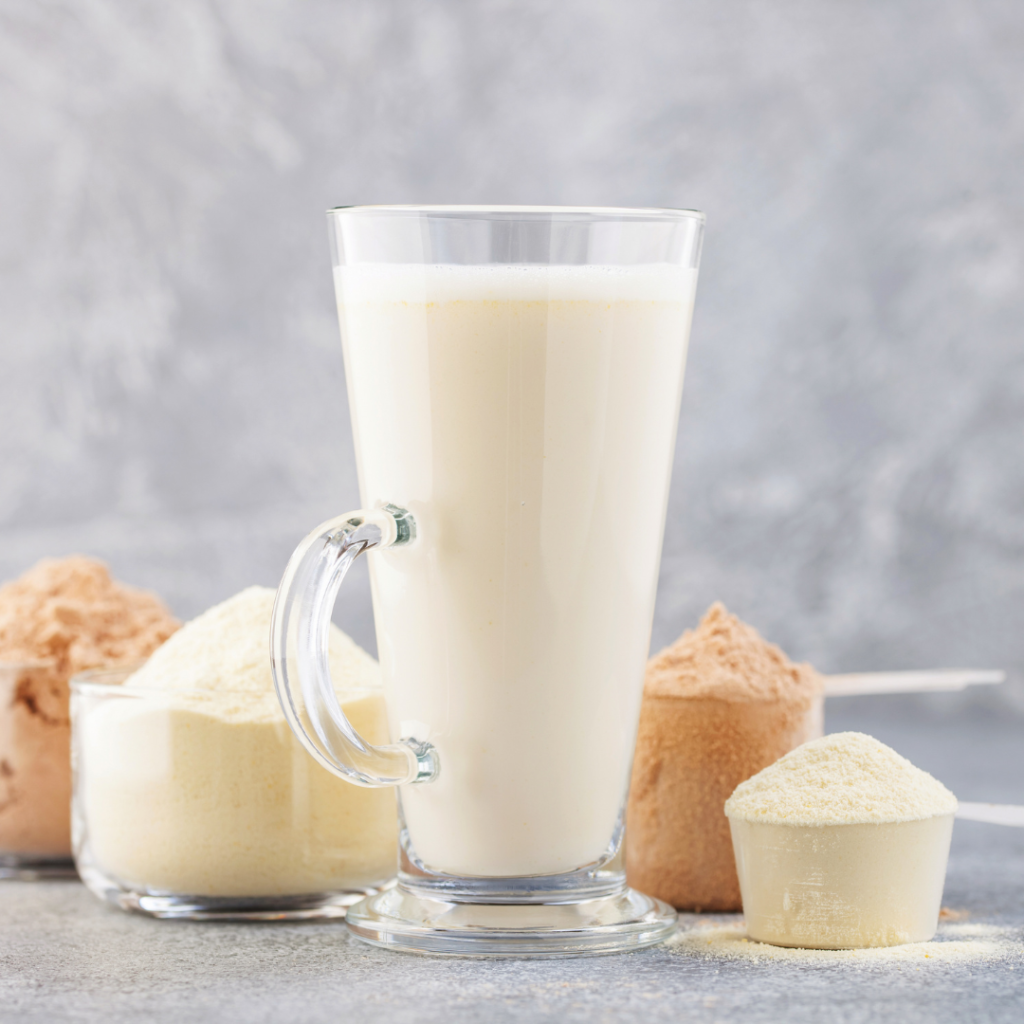Do You Need Protein Powder?

Protein is essential for everyone, but have you thought about incorporating protein powder into your diet? Typically associated with athletes, protein powders are commonly viewed as supplements. While this association is valid due to the marketing towards athletes, sufficient protein intake is crucial for overall health, not just for athletes.
Let’s delve into the basics of protein, understanding your personal protein requirements, and evaluating protein content in various foods. This will help you determine the right protein powder from the wide range of options in the market.
Protein Overview:
- Protein is a crucial nutrient necessary for daily consumption, alongside carbohydrates and fats, as they are macronutrients.
- Proteins are composed of amino acids, with over 20 types available, with 9 being essential and required daily.
- Complete proteins contain all essential amino acids, while incomplete proteins may lack one or two.
- The body does not store excess protein, so a continuous supply is needed.
- Protein plays a vital role in various bodily functions, such as muscle and bone health, skin, hair, enzymes, blood, and hormones.
- Adequate protein intake is linked to benefits like promoting muscle mass, wound healing, and weight management.
How much protein do you need every day?
An average person needs 0.8 grams of protein for every kg of body weight.
To get your weight in kg, take your weight and divide it by 2.2
This means that if you weigh 154 pounds (70 kg), you need 56 grams of protein daily. If you weigh 198 pounds (90 kg), then you need 72 grams of protein every day.
These are the basic requirements for most individuals, but some may require more. For instance, pregnant or breastfeeding people, individuals struggling with weight maintenance, like some older adults or those with specific medical/metabolic conditions requiring extra calories, might benefit from increased protein intake.
Athletes or highly active individuals need more nutrients for energy, including additional protein for recovery. Studies indicate that consuming high-quality protein within two hours post-exercise can improve muscle repair and growth. Athletes should target 1.2-2.0 grams of protein per kilogram of body weight, depending on the intensity of their training. For example, a 70 kg (154 lb) athlete should consume 84-140 grams of protein daily, while a 90 kg (198 lb) athlete should aim for 108-180 grams of protein per day.
Side Note: According to the Office of Dietary Supplements, high-protein diets (e.g., those that have two to three times the recommended daily allowance of protein) seem to be safe. Recent research shows that high-protein diets don’t increase the risk of kidney stones, kidney function, or dehydration or negatively impact bone health.
How much protein is in food?
When thinking of protein-rich foods, you may think of meat, eggs, seafood, and dairy. These are some of the foods that contain the highest amounts of protein. But did you know that protein is also found in many plant foods, including legumes, nuts, seeds, and grains—and there is even some protein in vegetables and fruit?
Here is a list of the amount of protein per serving in a few higher-protein foods:
- 33 g protein in 4 oz of sirloin steak
- 30 g protein in 4 oz of grilled sockeye salmon
- 28 g protein in 4 oz skinless chicken thigh
- 22 g protein in 4 oz ham
- 18 g protein in 1 cup of cooked lentils
- 8 g protein in 8 oz milk
- 6 g protein in 1 oz of dry roasted almonds
Animal protein sources are considered complete proteins because they contain all nine essential amino acids. Some plant-based proteins, like soy, quinoa, and chia seeds, are also considered complete. However, to get complete protein from other plant sources that may lack one or more amino acids, mix up your diet by eating various plant foods daily to get enough of your essential amino acids. Another bonus is that eating more plant-based foods can benefit your and the planet’s health because plants contain various nutrients (like fiber).
Not everyone gets the right amount of protein from food. Some who experience food insecurity, have specific dietary restrictions or malnutrition often need more protein. Others may get more than enough protein, especially if they eat a lot of animal-based foods. Many people can get enough protein by eating a variety of nutritious foods throughout the day. However, as with any nutrient, if you aren’t able to get enough from your diet, you may benefit from supplementation.
Choosing the right protein powder for you
Protein powders are convenient protein sources and often have added vitamins, minerals, sweeteners, and other ingredients. Different protein powders may contain protein from several different sources, and the amount of protein per scoop can vary between products. In the U.S., nutritional supplements—including protein powders—are not regulated. Some protein powders have been found to contain contaminants like heavy metals. This is why it’s essential to read the nutrition labels and get a recommendation for a high-quality product from a healthcare professional you trust before you change your supplementation regimen.
Here is a brief overview of some of the most common types of protein powders.
Whey or casein protein powder
Whey and casein are made from milk and should be avoided if you are allergic to, sensitive to, or otherwise avoid dairy. These animal-based proteins contain all of the essential amino acids your body needs. The difference is that whey is water-soluble and is absorbed more quickly than casein.
Soy protein powder
Soy is one of the plants that are high in protein and contains all of the essential amino acids (it’s a complete protein). Soy-based protein powders are a popular choice for people who avoid dairy.
Pea protein powder
Pea protein powders can be used by those who avoid dairy and soy. Pea protein is rich in eight of the nine essential amino acids, so it has low amounts of just one amino acid (methionine). Pea protein can be mixed with rice or animal-based proteins to provide a complete protein.
Hemp protein powder
Hemp protein is low in two essential amino acids (lysine and leucine). However, it does contain some of the essential omega-3 fatty acids.
Insight on Collagen
Collagen protein powders may lack all nine essential amino acids, making them an incomplete protein source. Some brands address this by adding the missing amino acids, so it’s important to check the label. Personally, I am a big advocate for collagen. This protein is naturally abundant in the body and is crucial in supporting the structure of bones, skin, muscles, tendons, and cartilage. However, as we age, our body produces less collagen. I view my daily collagen supplement as a boost of collagen rather than a substitute for protein. Special note: there are no vegan sources of collagen. Collagen supplements are derived from animals.
Final thoughts
Protein is a vital part of every nutritious, well-balanced diet. Meeting your personal protein needs is essential to good health. Protein is found in many foods—not only animal-based—and many people can meet their protein needs without supplementing.
However, some people need more protein than others (e.g., athletes). If you need a professional nutrition assessment or to consider starting or changing your supplementation regimen, consult a registered dietitian who can help.
References
Casparo, A. (2020, July 20). Protein and the athlete — How much do you need? Eat Right. https://www.eatright.org/fitness/sports-and-performance/fueling-your-workout/protein-and-the-athlete
Cleveland Clinic. (2021, January 29). 13 of the best vegetarian and vegan protein sources. Health Essentials. https://health.clevelandclinic.org/13-of-the-best-vegetarian-and-vegan-protein-sources/
Harvard T. H. Chan School of Public Health. (n.d.). Collagen. The Nutrition Source. https://www.hsph.harvard.edu/nutritionsource/collagen/
Harvard T. H. Chan School of Public Health. (n.d.). Protein. The Nutrition Source. https://www.hsph.harvard.edu/nutritionsource/what-should-you-eat/protein/
Harvard T. H. Chan School of Public Health. (n.d.). Workout supplements. The Nutrition Source. https://www.hsph.harvard.edu/nutritionsource/workout-supplements/
Hunnes, D. (n.d.). The case for plant based. UCLA Sustainability. https://www.sustain.ucla.edu/food-systems/the-case-for-plant-based/
Mayo Clinic. (2020, November 13). Whey protein. https://www.mayoclinic.org/drugs-supplements-whey-protein/art-20363344
Medical News Today. (2018, September 18). What are the benefits of protein powder? https://www.medicalnewstoday.com/articles/323093Office of Dietary Supplements. (2022, June 2). Dietary supplements for exercise and athletic performance. National Institutes of Health. https://ods.od.nih.gov/factsheets/ExerciseAndAthleticPerformance-HealthProfessional/
